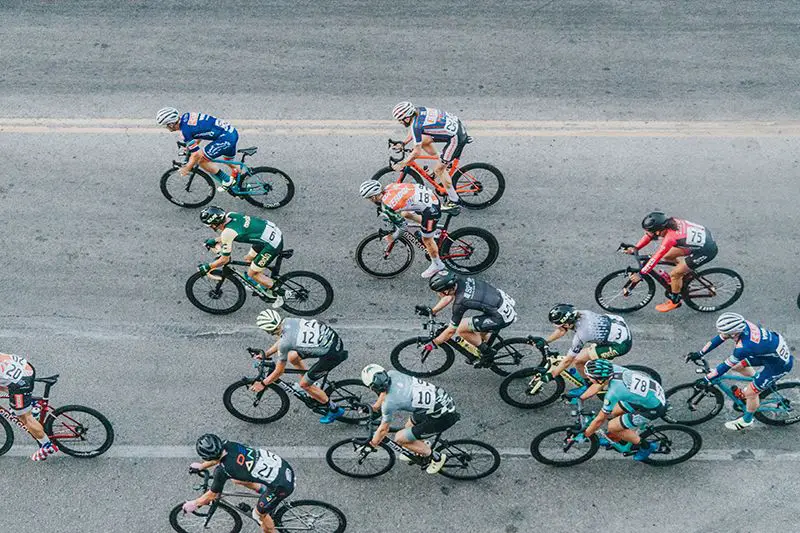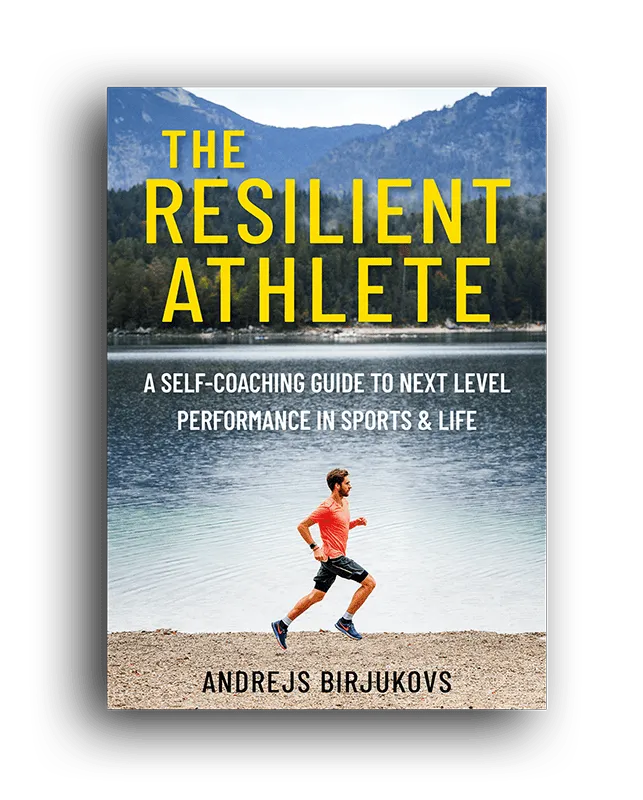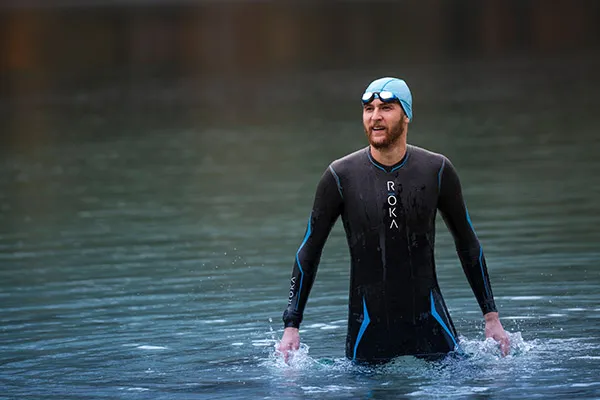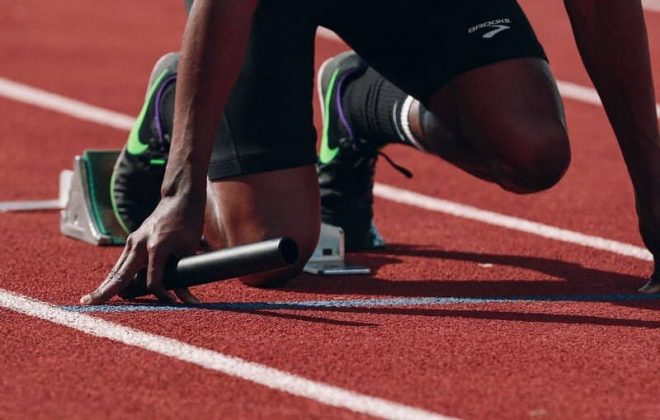Peak Performance Mindset – 21 Secrets How To Achieve More In Life
Of all the factors that produce peak performance mindset is by far the most important one. We can have all the talent in the world, necessary skills to do a great job and even luck on our side. However, if we doubt ourselves or not mentally prepared, results will only be mediocre.
There’s a lot that we can learn from athletes about maximum performance, ambitions and achieving more. Starting with the amount of grit they display while completing challenging workouts to the way they focus on pushing their body to the absolute limit when it really matters.
This ‘athlete mentality’ is something that anyone can develop and use to their advantage in everyday life.
Peak performance mindset
From the sidelines sport is often thought of as very physical – faster, stronger, higher, etc. However, after a certain threshold it becomes more and more mental. The ability to push yourself beyond the level of comfort becomes the defining factor.
In fact, in most professional sports the competition is so high that the difference between the winner and the runner up is hardly visible.
The gold medal and champagne usually go to those who are able to embrace the pain and discomfort more and stay focused longer.
The winner is typically the one who wants it the most and doesn’t give up until the end. Not necessarily the one who on paper has better chances. One doubt that runs through the mind before the race start can be the deciding factor between winning and settling for something else.

Whether in sport or in life peak performance mindset is, ultimately, a product of focus, determination, discipline, willpower and, of course, habits. It’s the mental state that allows to function at the top level and consistently deliver the best possible outcome.
How to develop and maintain a peak performance mindset
A lot about peak performance has to do with conditioning the mindset and changing perspective that we view our lives from.
Scroll down for the most effective strategies how to get into a peak performance mindset. And, more importantly, maintain it to achieve more in life.
#1 Learn the art of awareness
The first step in changing the mental state is becoming aware of it. Aware of where we place our focus, what principles we stand by, things we believe in, our emotions and even the way we respond to external events. And then be honest with ourselves whether that state helps or harms us.
Often we want too many things at once and end up running after everything. Usually these little things make us more busy (but not productive), distract and blur the vision. Having many things to focus on is like having 10 New Year’s resolutions. At some point it will get overwhelming and everything will come crashing sown.
Instead, stop and listen to yourself – both to the body and to the mind. Try to understand what are the few things that really matter and prioritize them. When we quiet down distractions we get more energy and motivation to be great at what we do.
Writing a diary is a great way to get started and figure out where the mind is really at.
#2 Practice focus
We put our energy into what we actively focus on. The stronger the focus – the better the results. When we’re doing something while thinking of something else we’re wasting effort and are unable to do our best work.
Focus is the ability to place full attention on one thing and fight the urge to think of something else. It’s like a muscle – when we practice consistently, we become good at it. But when we stop it’s easy to fall back into doing many things at once and not being particularly good at any of them.
Try to practice actively focusing on something and fighting distractions at every opportunity. Use Pomodoro technique to organize work in short bursts. Meditate to practice controlling your attention. Or simply don’t schedule too many things at once.
Read also: Top 5 Game-Changing Benefits Of Meditation For Athletes
#3 Get moving to get going
Athletes know very well that lack of energy and low motivation is very subjective and can often be deceiving. More often than not those feelings are just mental resistance.
A good practice athletes use to go around this resistance is to commit to always completing a warmup before deciding about skipping a session. Warmup promotes blood circulation in the muscles and to the brain, which can boost energy and focus. If after that the body still feels under-recovered, then take the session easy or take a break.
It’s the same in life – any great performance will need some warming up. Motion creates energy. So, if you feel stuck, low on energy or struggling with motivation – just start somewhere and focus on quick action. Think of the one that will move you closer to achieving the goal and start there.
#4 Delegate, outsource or find partners
Look for activities that drain your energy and think critically if you are the best person to complete those. This can be something that you need to do, but don’t enjoy (like cleaning the house and doing groceries). Or something where you don’t have the right skills (like athletes outsourcing video and other content creation).
Try to automate or outsource such activities. Or partner with someone who can provide those in exchange for something you’re good at.
Focus on the things you’re great at and let the others do the rest.
If you can free up mental & physical capacity by outsourcing something, wouldn’t that give you more time and energy to deliver best results at what you do? This is one of the time management hacks that can free up time to focus on things you do enjoy. And that will naturally cultivate a peak performance mindset.


#5 Adopt a winner’s mentality
A lot of athletes and regular people look at achievements from the perspective of when I will achieve this I will feel like a winner. When I will earn enough money, when I will be this strong and so on and so on. This mentality already assumes that a person accepted that he is not enough. Possibly, also not worthy to be a winner.
The secret to a peak performance mindset is that before we win at anything we have to feel like winners first.
Real winners don’t wait for something to happen – they have an unshakable confidence in their mind that they will win. They never think about losing. Instead, they say this is where I am and that’s what I need to work on next. That way they are going to a competition or solve issues in their daily life with confidence and not starting with a disadvantage or doubts.
#6 Celebrate small achievements
How to make yourself feel like a winner? Well, by winning more – ensuring you get stuff done and achieve something small on a consistent basis. Working on something continuously can get pretty boring and demotivating at some point of time, so it’s important to have small milestones along the way and work towards those.
A great way to leverage the habit of winning is to appreciate and celebrate small achievements or excellent performance. Whenever that occurs.
This celebration will serve as an additional motivator – something to look forward to. And also as a starting point for the next achievement. Without appreciating such small steps it’s easy to get to a point in life when we reach a certain level of success only to realize that the journey that took us there gave more fulfillment than the actual result.
Read also: Finding Fulfillment In Life – 21 Ideas To Stay Positive & Happy
#7 Use the ‘Pareto principle’
A long time ago an Italian economist Vilfredo Pareto discovered a so-called 80/20 rule. He observed that around 80% of the land in Italy was owned by 20% of the population. He also found that this pattern can be observed in virtually every area of life and concluded that roughly 80% of outputs come from just 20% of inputs.
The exact split may vary slightly. But the main point is that a lot can be achieved with less effort than we expect.
Often in our mind we tend to imagine the task at hand to be more complicated than it actually is. So, to leverage the 80/20 rule and be as effective as possible, try to think of what 20% of actions create 80% of the results and focus on getting those done first. This practice will help to get more stuff done and the feeling of completing more things will create a big motivation boost to do even more.
#8 Focus on solution, not the problem
Dwelling on the obstacles that arise or complaining about them is not productive. Those who have a peak performance mindset realize that obstacles make us stronger and appreciate those.
Everyone faces setbacks or problems. Those that really excel in life find ways to power through adversity, instead of getting discouraged by it. After all, those who achieve the most also try the most.

#9 Look for 1% improvement
Personal growth and consistent improvement is what powers personal transformation and opens many new doors. But it doesn’t necessary mean getting a new degree or learning a new skill.
An athlete needs to invest in training today to reach the peak later – sometimes years away (like the Olympics). In life it’s the same – we need to learn and get better every day to sustain peak performance later in life (new skills, education, etc.).
Try to look for small things that you can do every day to make yourself better. Just as little as 1% – everyone can find how to get better by that much. Doing that consistently will create a snowball effect and trigger in change across all areas of life towards a better performance and quality of life.
#10 Wake up early
Peak performance mindset starts in the morning. The simple act of pushing yourself to wake up early every morning trains discipline and willpower. There is a reason for the saying:
Who wins the morning wins the day.
When we wake up in the morning our mind is clear. With correct nudging we can get it to focus on anything we need and be at the top of our game at it.
Waking up early also lets you get a jump start on the day by getting all of the personal topics out of the way. This eliminates lots of excuses and helps to get more things done. After all, early in the morning everyone is asleep and there’s nobody to distract us.
Read also: 5AM Morning Routine – Best Habits For A More Productive Morning
#11 Remember the why
A great way to keep yourself motivated to perform is to think about the big picture.
Ask yourself on the consistent basis forward-looking questions. Who do I want to be? By doing what I do now (or not doing it) am I living up to my potential? If not – does it produce the kind of character I want to develop or the kind of person I want to become?
Often what we want is not what our mind needs to perform at the highest level. Peak performance mindset focuses on development – doing something new and pushing boundaries. When we revert to our usual habits and activities (relaxing, watching TV, etc.) our mind strives to degradation.
Waking up early and learning something new is investing in yourself. Scrolling through social media is degrading.
#12 Focus on the positive
While we might not notice it directly, the way we think translates into how we perform. For example, the more negative self-talk we engage in, the more doubt we will have about ourselves. Even if that is just for fun.
And there’s a quite technical reason for that, called the Reticular Activating System. That’s the mechanism in our brain that is responsible for filtering out the information, so that important one gets through. It’s important to note that for the brain important information is the one that we focus most on.
In other words, the more we doubt ourselves or think negative thoughts, the more reasons the brain will find for that to be true.
To create a peak performance mindset try to always look at the positive side and appreciate things. Being positive takes effort, but it helps to distance yourself from the doubts that might creep in or destructive thinking that can cause a negative behavior.
And don’t forget to smile – it is where all positive thinking starts.
#13 Seek support and quality feedback
News are filled with stories of people starting from nothing and building themselves up on their own. While going at it alone might sound heroic and inspiring, in reality there is always a support group behind.
And that’s the secret – we don’t need to struggle and try to achieve everything on our own. Those who have the courage to step over their ego will notice, in fact, that the result of a team effort is much greater. A well-organized training group will always be a more effective way to train. It will push athletes to produce peak performance and at the same time support them when they are feeling down.
A great way to incorporate this system into professional life is to join or start a mastermind group.

A mastermind is a group of like-minded people (typically 4 to 8) that meets on a regular basis. The goal is to discuss challenges and opportunities, as well as to encourage and provide support to each other. Having such group can be a very powerful force, as it helps to realize that you’re not alone (high chance others are going through the same thing) and have all these people you respect that can support you. So, choose carefully and have encouraging and positive people in the group.
This concept was introduced by Napoleon Hill back in 1920, but couldn’t be more relevant now.
Before joining a mastermind group it‘s a good idea to learn to embrace criticism and not take it personally. Learn to differentiate between destructive and constructive type. The former typically comes out as negative comments that don’t suggest any improvement. More often than not is just an expression of someone’s personal problems.
#14 Find a mentor and a coach
Another great way to receive feedback is to find a coach or a mentor (preferably both). Mentor is someone who has already threaded the path you plan to take. He can guide you through it, offer an advice or put things into perspective. The role of a coach, on the other hand, is to help improve and maximize results at whatever a person is already doing.
Some people might be reluctant to have someone point out their weaknesses and tell them what to do. And in vain – just like in training, a mentor or a life coach has the person’s best interests in mind. He/she can look at what a person is doing, find ways to get better and push the level performance to a much greater extent.

The Resilient Athlete
A Self-Coaching Guide to Next Level Performance in Sports & Life
Are you aiming to become a resilient athlete who is able to withstand any pressure? Be able to jump on any opportunity? Take any challenge life throws at you head on?
Then this book is for you.
Learn more#15 Have a plan
Without a plan, it’s easy to feel adrift in life. To feel like we have no control and that life is happening to us. However, when we take the time to think about where exactly we want to be in a bit longer than a year (like 5 and 10 years), magic starts to happen.
The simple practice of taking a long term view helps to narrow the focus and start brainstorming ideas how to get there. Thanks to Reticular Activating System (point #12 above) our brain will start to develop ideas how to make things happen once we make them a priority. It will also stop coming up with excuses why something can’t be done.
To create a plan think of what you want to achieve in 5 and 10 years and break it down into milestones. It can be an ambitious vision that might seem impossible to reach, but you’ll never know until you try. We’re bad at forecasting (stock market and weather are good examples) and we tend to overestimate what can be done in a year and underestimate what can be done in a decade.
The act of breaking down the vision into smaller goals alone can empower to act and achieve more than any other activity.

#16 Increase energy levels with good lifestyle habits
A lot of people waste precious energy on unhealthy habits (poor diet or sleep) and/or doing too much of what doesn’t move them closer to achieving their best performance (i.e. social media or TV).
Peak performance mindset is connected to our physical body, which is impacted a lot by our lifestyle. So,
If our energy levels are low as a result of poor lifestyle habits, we won’t be able to produce peak performance.
Developing good habits is a great way to improve the quality of life and performance. Some of the areas to start that have most impact on performance are optimizing diet, getting more quality sleep, reducing mental stress and exercising more.
#17 Challenge yourself
Doing the uncomfortable is one of the best ways how to cultivate a peak performance mindset. Get in the habit of forcing yourself to consistently doing things that are outside your comfort zone. In the long term this practice will push the boundaries, improve mental resilience and bring high performance on a totally new level.
Be it a physical challenge – like finishing an Ironman – or a personal one, challenging yourself is a great way to get yourself in a new mental space.
For the best effect step outside of the comfort zone just a little bit, but more frequently. This will push that zone a little further every time. Just like with the concept of gradual adaptation and supercompensation.
#18 Have a holistic approach
Sport might seem as physical activity and, yes, running, swimming or cycling more will improve physical condition significantly. However, just doing that will not get athletes a status of an elite or get them to the Olympics. Getting to the top 1% of the field will require mastering every aspect of performance. Speed, strength, nutrition, recovery and much more.
In life it is the same – instead of zeroing in on one particular area, a much better approach is to look at the issue, situation or life as a whole. Engage in different projects, learn new things and develop new skills across a variety of areas. Over time this will create a much wider viewpoint and help to become more effective as a professional and as a leader.
And speaking about every area of performance…
#19 Accept yourself, but work on weaknesses
Our performance will always be limited by our weakest link. In sport it’s typically some muscle tightness or mobility restrictions that prevents athletes from running fast or throwing further. In life it’s typically the beliefs we have about ourself that prevent us from achieving more. Bad experiences of the past or things we keep saying to ourselves over and over again that we start to believe to be true. I’m not a morning person, I’m not lucky enough, I’m not good at speaking in public.
Having the courage of taking a hard look on ourselves and being honest with what beliefs have been holding us back is a very powerful way of getting to the next level of performance. When we accept ourselves the way we are, we stop blaming outside factors and complaining. Instead, we focus on what we can do to make the situation better.
So, don’t be hard on yourself and don’t dwell on the past. Just as we can’t change the weather on race day, we can’t change the choices we made that brought us here. What we can do, however, is accept the fact, get in peace with ourselves and change our future.
#20 Build resilience
Elite athletes never miss an opportunity to become more mentally strong. They know that when things get tough (as they usually do in races) that mental strength will keep them from giving up. It will also let them deliver the best performance no matter what.

Mental resilience is, probably, the most important life skill of all. There will always be obstacles in life that we aren’t prepared for. So, the more stresses we expose ourselves to and learn to deal with the less external things will affect us. Just like Rocky said:
It ain’t about how hard ya hit. It’s about how hard you can get hit and keep moving forward. How much you can take and keep moving forward. That’s how winning is done!
#21 Seek experience first, results second
Specific or tangible result is a good thing and can be a great goal to strive for. However, there are situations where experience is more worthy than any tangible result. Like that time when we entered an overnight kayak adventure race and were pushed to our absolute mental limits.
Experience is a specific event or an outcome that leaves an impression on a person. It can be positive or negative, but the sum of those experiences is what shapes the character. And the character that we build throughout our life is what lets us achieve even greater things down the road.
So, switch focus from results to the process itself. Learn to invest in yourself and value experience more than results. It will always pay off us down the road.
After all, you’ll remember the journey more than the destination.
Did you find this information useful? Share the post with others using the buttons below.
Have an opinion? Share via links below and tag @theathleteblog
Andrejs
GET A FREE TRAINING PLAN
Subscribe to my email list and get access to a free 4-week “back in shape” training plan
You’ll also get two full-body strength sessions and some other goodies!

How did I get here?
Hey there! My name is Andrejs and I am here to inspire, entertain and get you fit for any adventure.
I went from being an over trained pro athlete to an endurance coach sharing how to listen to your body and live life to the fullest.
Traveling, new sports & activities brought new meaning to my training and made it much more effective, fun and enjoyable. And I'm here to help you do the same.


